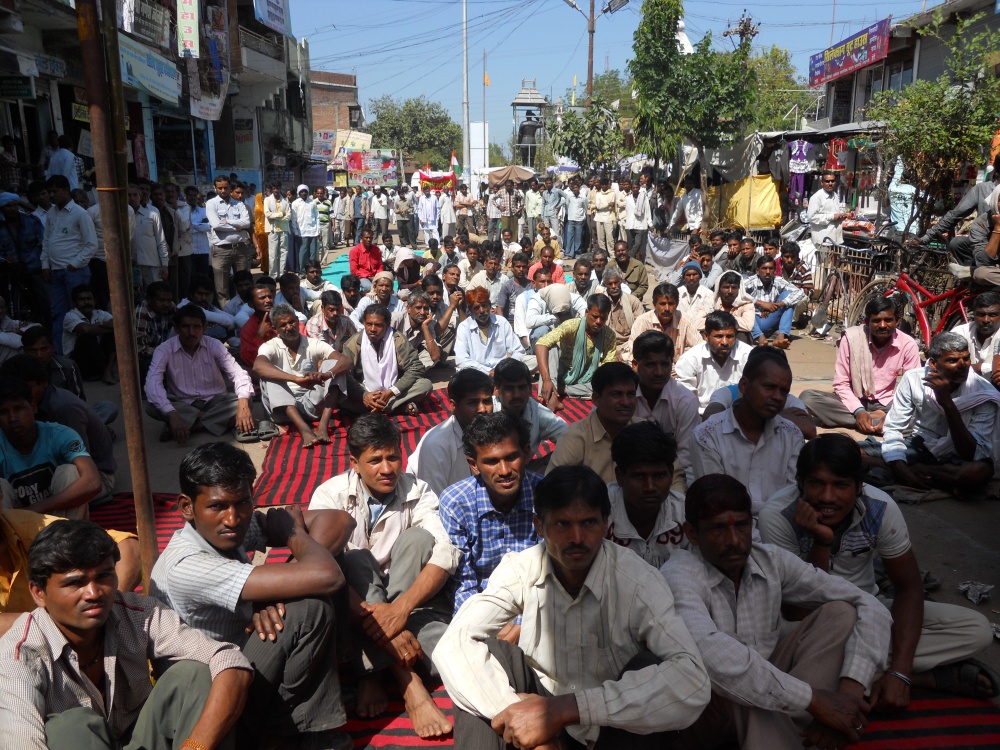mass media
(With video) Australia's premier socialist newspaper, 'Green Left Weekly', produces 1000th issue
By Mel Barnes, Green Left Weekly editor
Venezuela: Coups, media and stalemates -- what the violent right-wing protests mean

Thousands of Chavistas marched through central Merida on February 12.
CIA and Mandela: Can the truth be told now?; Mandela and misremembering history
"One of Our Greatest Coups": The CIA & the Capture of Nelson Mandela, D
Venezuelanalysis: 10 years reporting on the Bolivarian Revolution

[To help keep Venezuelanalysis.com going f
Protest at the speed of light: social networking the revolution

[See also "Egypt: Much more than a `Facebook revolution'".]
By Roberto Jorquera
May 8, 2013 -- Links International Journal of Socialist Renewal -- Increasing access to the internet, together with the development in social network sites and mobile devices, has resulted in the ability for individuals and communities to be able to quickly share information, ideas and proposals for action to an ever-increasing audience. This has allowed protest movements to promote and have their voices heard outside traditional mass media outlets and government institutions that have excluded them in the past.
The development of social network sites has provided an easier opportunity to build online networks but has also impacted on social networks outside the internet terrain. This article will discuss the significance and impact of social network sites on social change focusing on the “Arab Spring”. It will work towards an assessment of how online social networks can impact networks in broader society that result in social change.
Media lies exposed: Venezuela's economic and social performance under Hugo Chávez, in graphs
Jim McIlroy, an activist from the Australia-Venezuela Solidarity Network, interviewed by ABC TV News, on March 8, 2013, on the significance of Venezuela's socialist President Hugo Chavez. He successfully refutes the misinformation of the hostile "interviewer".
March 10, 2013 -- Links International Journal of Socialist Renewal -- Following the tragic death of Venezuela's President Hugo Chávez from cancer after 14 years in office, the world's big-business media has gone into overdrive to dishonestly describe Chavez's record as being "authoritarian", "dictatorial" and having made the Venezuelan economy a "basket case", as was rudely interjected by an Australian Broadcasting Corporation "journalist" in the video above. Such media lies have been refuted by Fairness and Accuracy in Reporting and VenezuelAnalysis.
Hugo Chavez, undefeated! Why the rich and powerful hated Chavez
'So let the corporate media lie about Chavez in their cynical way.
India: Two-day general strike shakes country; crackdown on working class follows

By Kavita Krishnan
February 27, 2013 -- Links international Journal of Socialist Renewal via Radical Socialist -- The dominant capitalist media narrative about the February 21-22 all-India strike called by the country's major trade union centres was one of "hooliganism" by workers and inconvenience caused to the "public". As is usual, the main demands of the striking workers found little space in the media’s discussion of the strike.
Ten years since the biggest protests in history
February 22, 2013 – Green Left TV – The